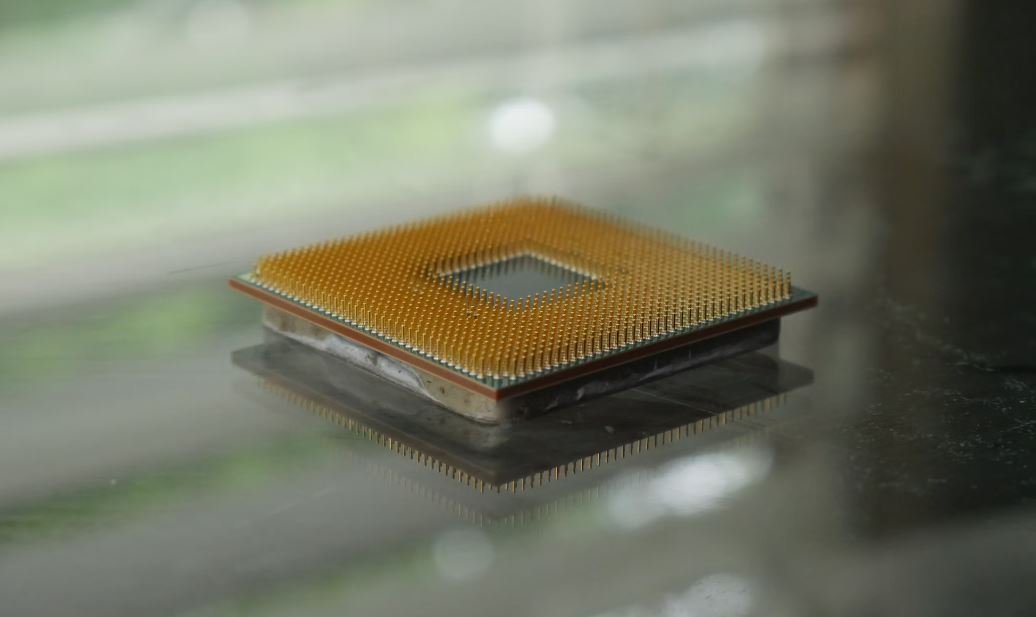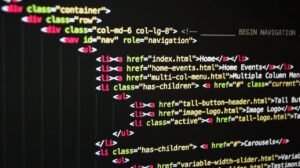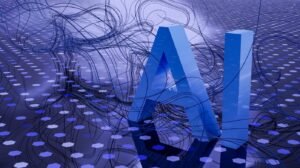Can AI Program Itself?
Artificial Intelligence (AI) has advanced rapidly in recent years, with machines becoming increasingly capable of performing complex tasks previously reserved for humans. But can AI go one step further and actually program itself? This concept, known as AI self-programming, is an intriguing frontier in the field of AI research.
Key Takeaways:
- AI self-programming explores the possibility of machines learning how to write their own code.
- Researchers are developing algorithms that allow AI systems to adapt and improve their programming.
- Self-programming AI has the potential to revolutionize software development and automate many coding tasks.
AI self-programming involves the use of algorithms and machine learning techniques to enable machines to write their own code. Traditional AI systems are typically pre-programmed with specific instructions and rules, limiting their capabilities to the knowledge and instructions provided. However, self-programming AI aims to overcome these limitations by giving machines the ability to learn and adapt their programming based on experience.
One interesting approach to self-programming AI is called reinforcement learning, where an AI agent interacts with its environment and receives feedback or rewards based on its actions. Through this process, the AI agent can learn to improve its performance over time by refining its own programming.
Imagine an AI system that can continuously refine and optimize its own code, making it more efficient and effective at solving complex problems.
Can AI truly program itself?
The question of whether AI can truly program itself is still an open debate among researchers. While there have been remarkable advancements in self-programming AI, there is still a long way to go before machines can completely replace human programmers. However, the potential benefits of self-programming AI are immense.
Self-programming AI has the potential to revolutionize software development, automating many coding tasks and freeing up human programmers to focus on more complex and creative aspects of software design. It could also lead to a significant reduction in software bugs and vulnerabilities, as machines can continuously improve their own programming to avoid errors.
Imagine a world where AI systems can evolve and improve their own programming, leading to more efficient and secure software.
Challenges and Limitations of AI self-programming
While the idea of AI self-programming is appealing, there are several challenges and limitations that need to be addressed. One major challenge is the exploration-exploitation dilemma. When an AI agent is trying to learn and improve its programming, it needs to strike a balance between exploring new possibilities and exploiting existing knowledge.
| Challenge/Limitation | Description |
|---|---|
| Knowledge Representation | Creating algorithms that can represent and understand complex programming concepts |
| Limited Knowledge Transfer | Difficulties in transferring learned programming knowledge to other domains or tasks |
| Ethical Considerations | The potential implications of AI self-programming on job displacement and human control |
Table 1: Challenges and limitations of AI self-programming
Another limitation is the knowledge transfer problem. AI systems that can self-program may struggle to apply their learned programming knowledge to other domains or tasks. This means that even if a machine becomes proficient in a specific programming language or problem domain, it may not be able to transfer that knowledge effectively to a different context.
It is also important to consider the ethical implications of AI self-programming. The increasing automation of programming tasks raises concerns about the potential displacement of human programmers. Additionally, there are ethical considerations related to human control over AI systems and the potential for unintended consequences if machines can modify their own programming without human intervention.
The Future of AI self-programming
The future of AI self-programming is exciting and holds great potential for the field of software development. While there are still many challenges to overcome, researchers continue to make significant progress in developing algorithms and techniques for AI self-programming.
Some potential future developments in this field include:
- More sophisticated algorithms that can handle complex programming concepts.
- A standardized knowledge representation format to facilitate knowledge transfer between AI systems.
- Stricter regulations and ethical guidelines to ensure responsible deployment of self-programming AI.
Table 2: Potential future developments in AI self-programming
As AI self-programming continues to evolve, it has the potential to revolutionize the field of software development and create more intelligent and adaptive systems.

Common Misconceptions
AI Program Itself
There is a common misconception that AI can program itself, leading many people to believe that it has the ability to autonomously develop new algorithms and improve its own performance. However, this is not entirely accurate.
- AI requires human intervention and programming input to function effectively.
- AI algorithms can analyze data and make informed decisions, but they cannot develop new algorithms on their own.
- AI systems need constant updates and maintenance from human programmers to adapt to changing requirements and improve their performance.
General Intelligence in AI
Another misconception is that AI possesses general intelligence, similar to human intelligence. However, AI systems are typically designed to focus on specific tasks and lack the multi-dimensional cognitive abilities of humans.
- AI is designed to excel at specific tasks but lacks the broader understanding and adaptability of human intelligence.
- AI algorithms are limited to the data they are trained on and cannot reason or generalize beyond their training set.
- AI cannot replicate human emotional intelligence or complex decision-making based on moral values. It lacks ethical judgment.
Autonomy and Self-awareness in AI
Some people believe that AI can achieve autonomy and self-awareness, similar to conscious human beings. However, AI systems do not possess consciousness or self-awareness as they are purely computational entities.
- AI operates based on predefined algorithms and rules, without a genuine understanding of its actions or existence.
- AI lacks the ability to experience consciousness, emotions, or subjective experiences.
- AI systems do not possess the capacity for introspection or self-reflection.
AI as a Replacement for Humans
There is a misconception that AI will completely replace human workers in various industries and render them obsolete. However, the reality is that AI is designed to assist human professionals, not replace them entirely.
- AI can automate repetitive tasks, allowing humans to focus on more complex and creative work.
- AI systems rely heavily on human input and supervision to ensure accuracy and make critical decisions.
- AI may change job roles and require upskilling, but it is unlikely to eliminate the need for human expertise in most domains.
Unlimited Progress of AI
Lastly, some people hold the misconception that AI will continue to progress infinitely, eventually surpassing human intelligence. However, there are inherent limitations and challenges in AI technology.
- AI progress is dependent on the quality and quantity of available data for training.
- AI faces challenges in handling complex, ambiguous, or novel situations that humans can navigate effortlessly.
- AI also encounters ethical and social implications that require human oversight and intervention.

AI’s Evolution
Over the years, Artificial Intelligence (AI) has made significant advancements. This table explores the various milestones achieved in the field of AI.
| Year | Advancement |
|---|---|
| 1950 | Alan Turing proposes the “Turing Test” to evaluate a machine’s ability to exhibit intelligent behavior. |
| 1997 | IBM’s Deep Blue defeats the world chess champion, Garry Kasparov, in a six-game match. |
| 2011 | IBM’s Watson wins against human contestants on the quiz show, Jeopardy! |
| 2014 | Google’s DeepMind develops a neural network that learns to play Atari 2600 video games at a superhuman level. |
| 2016 | Google’s AlphaGo defeats the world champion in the ancient game of Go. |
| 2017 | AlphaGo Zero surpasses human knowledge by using only reinforcement learning without any human input. |
| 2018 | OpenAI’s AI model, GPT-2, generates highly coherent and contextually relevant text. |
| 2020 | OpenAI’s GPT-3 showcases unprecedented natural language processing and generation capabilities. |
| 2021 | AI develops novel strategies in complex games like chess and Go, surpassing previous human knowledge. |
| 2021 | AI exhibits improved language understanding and context representation. |
AI’s Impact on Job Market
The proliferation of AI technologies has led to significant transformations in the job market. This table highlights the impact of AI on different industries.
| Industry | AI Impact |
|---|---|
| Manufacturing | Automated production processes leading to increased efficiency and reduced labor costs. |
| Transportation | Development of autonomous vehicles, revolutionizing logistics and transportation systems. |
| Healthcare | AI-powered diagnosis and treatment tools improving patient care and streamlining medical processes. |
| Finance | Robo-advisors providing personalized investment recommendations and automated trading systems. |
| Customer Service | Chatbots and virtual assistants enhancing customer support efficiency and satisfaction. |
| Education | AI-based learning platforms enabling personalized and adaptive education experiences. |
| Marketing | AI-driven analytics and targeted advertising optimizing marketing strategies and campaigns. |
| Entertainment | AI-generated content, such as music and movies, revolutionizing creative industries. |
| Agriculture | AI-powered drones, sensors, and analytics improving crop yield and optimizing farming techniques. |
| Security | AI algorithms assisting in threat detection, cybersecurity, and surveillance systems. |
AI in Healthcare
Artificial Intelligence has become increasingly integral to the healthcare industry. This table showcases some impactful AI applications in healthcare.
| AI Application | Description |
|---|---|
| Medical Image Analysis | AI algorithms assist in interpreting medical images, aiding in early detection of diseases. |
| Drug Discovery | AI speeds up the process of identifying potential drugs, reducing development time and costs. |
| Virtual Assistants | AI-powered chatbots and virtual assistants provide healthcare information and support to patients. |
| Genomic Analysis | AI helps analyze vast genomic datasets, leading to advancements in personalized medicine. |
| Remote Patient Monitoring | AI enables continuous monitoring of patients, facilitating early intervention and improving patient outcomes. |
| Surgical Robotics | AI-based surgical robots assist surgeons in performing precise and minimally invasive procedures. |
| Health Records Management | AI systems organize and analyze patient records, enhancing medical decision-making and patient care. |
| Epidemiological Forecasting | AI models predict disease outbreaks, helping governments and healthcare organizations prepare and respond effectively. |
| Neural Interfaces | AI enables brain-computer interfaces, allowing individuals to control devices using their thoughts. |
| Robot-Assisted Rehabilitation | AI-powered robots aid in the rehabilitation process for individuals with physical impairments. |
AI and Ethics
The ethical considerations surrounding AI systems have become a topic of intense debate. This table presents key ethical challenges related to AI.
| Ethical Challenge | Description |
|---|---|
| Algorithmic Bias | AI systems may perpetuate biases existing within training data, leading to discriminatory outcomes. |
| Data Privacy | AI systems handling personal data raise concerns about the privacy and security of individuals. |
| Job Displacement | The automation of tasks by AI can disrupt traditional jobs, impacting livelihoods and creating economic inequality. |
| Autonomous Weapons | AI-powered weapons raise concerns about the lack of human control and potential for misuse. |
| Social Manipulation | AI-powered algorithms can influence human behavior, leading to concerns about deception and manipulation. |
| Transparency and Explainability | AI systems’ decision-making processes may be opaque, making it challenging to understand and address potential biases. |
| Accountability | The accountability for AI-aided decisions and actions is often unclear, raising questions about responsibility and liability. |
| Unemployment and Universal Basic Income | The future impact of AI on employment necessitates discussions about social safety nets, such as universal basic income. |
| Machine Morality | Questions arise regarding the ethical frameworks governing AI systems’ decision-making in morally ambiguous situations. |
| Human Empowerment | Acknowledging the potential of AI to empower individuals, while considering its implications for social inequality. |
AI in Popular Culture
AI’s influence on popular culture is evident in various works of literature, film, and music. This table explores notable examples.
| Media | Description |
|---|---|
| “2001: A Space Odyssey” (1968) | Stanley Kubrick’s iconic film features HAL 9000, an AI exhibiting complex behavior and rebellion. |
| “Blade Runner” (1982) | Ridley Scott’s film explores the concept of humanoid AI known as “replicants” living among humans. |
| “The Matrix” (1999) | The Wachowskis’ science fiction film envisions a dystopian world where AI dominates humanity. |
| “Ex Machina” (2014) | The film delves into the boundaries between humans and AI through an android named Ava. |
| “Westworld” (2016 – present) | A TV series set in a theme park populated by AI-powered androids, exploring themes of consciousness and morality. |
| “Black Mirror” (2011 – present) | The anthology series explores the dark consequences of advancements in technology, including AI. |
| “I, Robot” (2004) | Based on Isaac Asimov’s stories, this film depicts a world where robots coexist with humans, adhering to ethical guidelines. |
| “Her” (2013) | Spike Jonze’s romantic science fiction film tells the story of a man who develops a relationship with an AI assistant. |
| “A.I. Artificial Intelligence” (2001) | Steven Spielberg’s film explores the quest of an AI child to become a real human. |
| “Transcendence” (2014) | The film delves into the concept of uploading human consciousness into a powerful AI system. |
AI’s Impact on Education
Artificial Intelligence has the potential to revolutionize education. This table examines AI’s impact across different educational domains.
| Domain | AI Impact |
|---|---|
| Personalized Learning | AI algorithms adapt learning content to individual students’ needs and pace, enhancing engagement and achievement. |
| Automated Grading | AI systems can provide timely and objective feedback on student assessments, reducing teacher workload. |
| Tutoring and Support | AI-powered virtual tutors aid students in understanding difficult concepts and provide personalized assistance. |
| Administrative Tasks | AI automates administrative processes, such as scheduling, record-keeping, and resource allocation. |
| Language Learning | AI language learning platforms facilitate language acquisition through interactive exercises and real-time feedback. |
| Content Creation | AI generates educational content, such as quizzes and study guides, tailored to learners’ specific needs. |
| Learning Analytics | AI analyzes vast educational data to identify patterns and provide insights for instructional improvement. |
| Social and Emotional Intelligence | AI tools assist in developing students’ social and emotional skills, fostering empathy and well-being. |
| Augmented Reality | AI-based AR applications enhance interactive and immersive learning experiences. |
| Special Education | AI technologies offer personalized support for students with special educational needs, adapting to their unique requirements. |
AI’s Environmental Impact
The use of AI can contribute to sustainability and environmental conservation. This table demonstrates AI’s positive influence on the environment.
| Area | AI’s Contribution |
|---|---|
| Energy Efficiency | AI aids in optimizing energy consumption and reducing waste through data analysis and smart grid management. |
| Renewable Energy | AI predicts and optimizes renewable energy production, making it more reliable and cost-effective. |
| Waste Management | AI systems optimize waste collection routes and recycling processes, minimizing environmental impact. |
| Environmental Monitoring | AI-based sensors and drones monitor ecosystems, assisting in early detection of environmental hazards. |
| Smart Agriculture | AI assists in precision farming, enabling efficient water usage and reducing the need for pesticides and fertilizers. |
| Wildlife Conservation | AI algorithms aid in monitoring and protecting endangered species, enhancing conservation efforts. |
| Smart Cities | AI optimizes urban planning, transportation systems, and waste management for sustainable and livable cities. |
| Climate Change Modeling | AI models simulate and predict complex climate dynamics, helping in understanding and managing climate change. |
| Water Management | AI systems optimize water distribution, reducing water wastage and mitigating water scarcity issues. |
| Ecosystem Restoration | AI plays a role in ecological restoration efforts, aiding in the recovery of damaged ecosystems. |
AI’s Future Potential
The future of AI holds immense possibilities and potential. This table explores emerging areas that could shape AI’s future.
| Emerging Area | Description |
|---|---|
| Explainable AI | Developing AI systems that can provide clear explanations for their decisions and actions. |
| AI in Space Exploration | Utilizing AI to enhance autonomous spacecraft navigation, extraterrestrial research, and colonization planning. |
| Quantum AI | Exploring the integration of quantum computing capabilities with AI algorithms for enhanced computational power. |
| AI and Cybersecurity | Developing AI systems to detect, prevent, and respond to cyber threats in real-time. |
| Neuromorphic Computing | Building AI systems inspired by the structure and functionality of the human brain. |
| AI for Social Good | Using AI to address social and environmental challenges and promote equity and sustainability. |
| AI and Human Augmentation | Exploring the integration of AI technologies to enhance human capabilities, including memory and cognition. |
| AI and Creativity | Developing AI systems that can generate artistic content, music, and literature with human-like creativity. |
| AI in Brain-Computer Interfaces | Advancing AI technology to enable seamless communication and control between computers and the human brain. |
| Ethical AI Governance | Establishing robust frameworks and policies to ensure responsible development and deployment of AI systems. |
Conclusion
Artificial Intelligence has undoubtedly made remarkable progress over the years. From defeating chess champions to transforming various industries, AI’s potential continues to expand. However, ethical challenges, impact on the job market, and concerns over accountability and bias persist. Nevertheless, AI’s impact is undeniable and extends from healthcare to education, entertainment to the environment. With emerging areas and future innovations on the horizon, AI’s role in shaping our world will undoubtedly continue to evolve.
Frequently Asked Questions
Can AI program itself?
Can AI learn to program other AI systems?
Does AI have the ability to write code independently?
What are the limitations of AI in programming itself?
Are there any AI systems that can program themselves to a significant degree?
Is there a risk of AI systems becoming uncontrollable if they can program themselves?
What are the benefits of AI learning to program itself?
How can AI be used to improve self-programming capabilities?
What are the challenges in achieving AI self-programming?
Will AI programming itself be a threat to human programmers?





